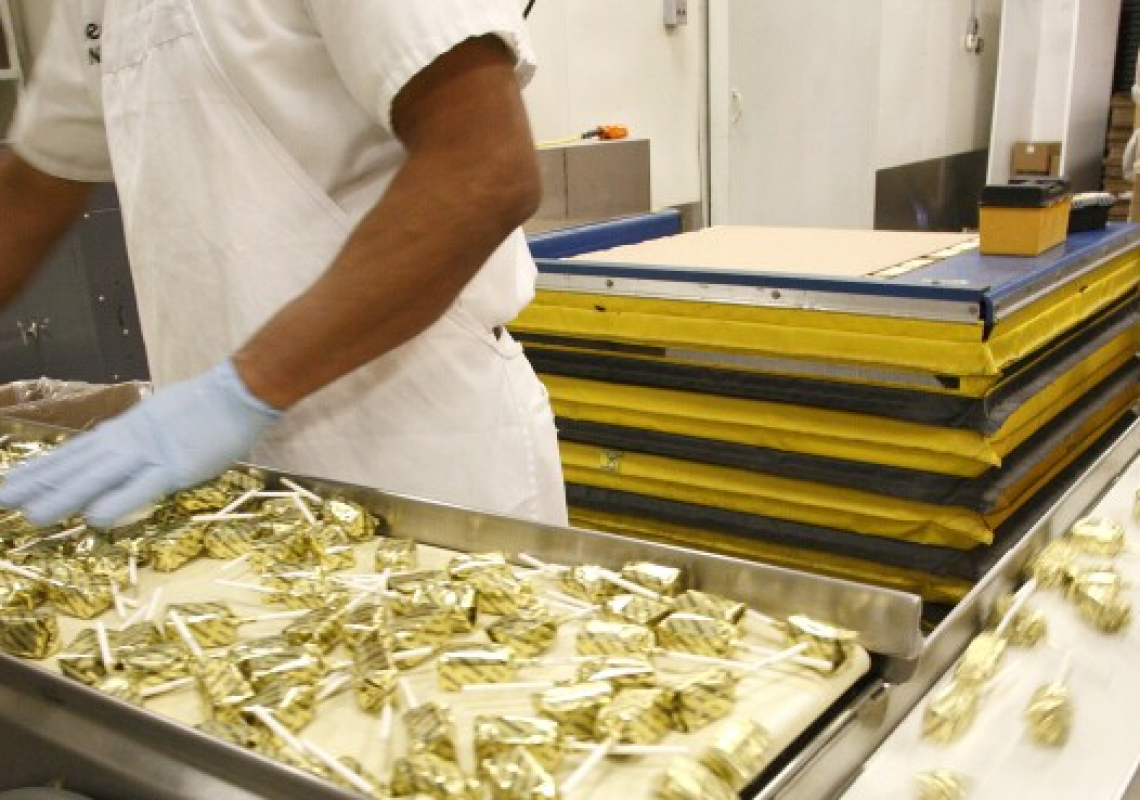By Erin Mulvaney
Matilde Ek’s claim that her husband died after he contracted Covid-19 she got from working on a See’s Candies factory assembly line will move forward, signaling that employers may have to defend such wrongful death cases despite state workers’ compensation shields.
A California appellate court in Los Angeles recently rejected a request from See’s Candies, a unit of Warren Buffett’s
“The case provides a lesson for employers that while the workers’ compensation laws provide broad and strong protection for employers, it’s not absolute protection,” said Dan Pyne, co-chair of the labor and employment practice at Hopkins & Carley in San Jose, Calif.
Since the onset of the pandemic, families have accused retailers, meatpacking plants, and other businesses of negligence that led to employee deaths and sickness related to Covid-19. Employment attorneys and academics have pointed to workers’ compensation laws—which vary state by state— as a barrier to these lawsuits, and that argument is currently being tested in courts around the country.
Ek’s case, however, centers on a family member who died because a worker allegedly brought Covid-19 home, which could prove fertile ground for similar claims as the pandemic continues and businesses return to in-person work despite spiking cases caused by the Omicron variant.
It comes as a federal appeals court weighs a similar case that went the other way, where a federal judge in San Francisco said workers’ compensation prevented an employee from suing over his wife’s infection. Oral argument is scheduled in March.
“Workers’ comp. is a bargain between workers and employers, and the family members aren’t in on that deal” said Michael Duff, a law professor at the University of Wyoming, who specializes in workers’ compensation.
He said a parallel scenario would be if an employee brought a dangerous substance back from work, like asbestos, and the family member got sick. “We don’t have a lot of case law, even on those cases, and almost none about Covid. It’s being born and emerging.”
Even if workers’ compensation laws are bypassed, wrongful death plaintiffs will face challenges in court to determine if workers contracted the virus on the job. And safety measures such as vaccine requirements and mask mandates could bolster a company’s defense against liability, attorneys say.
Matilde Ek sued on behalf of herself and her daughters, alleging that she became infected because of See’s Candies’ inadequate Covid-19 prevention safety measures, and that this negligence caused her husband’s death.
The California appeals court upheld a trial judge who rejected the company’s argument that Arturo Ek’s death was a “derivative injury” of Matilde Ek’s illness under California’s workers’ compensation law.
See’s Candies thus couldn’t rely on a statutory “bargain” that gives workers benefits for on-the-job injuries and illness while protecting employers from liability unless they commit serious misconduct.
Hopkins & Carley’s Pyne said the court’s reasoning “opens the door for similar claims” in the future.
“In the midst of a pandemic, it’s fairly foreseeable that that sort of thing would happen,” he said. “But as to whether this will lead to a flood of litigation, I don’t see that.”
In cases filed by family members of workers who died of Covid, judges elsewhere have allowed those lawsuits to proceed in court despite the workers’ compensation barrier.
For example, a Florida state judge in Miami denied
The U.S. Chamber of Commerce called the trial judge’s ruling in Ek’s case an “outlier,” according to its friend-of-the court brief to the appellate court.
“The trial court’s decision, if left to stand, will force employers across the state to face overwhelming uncertainty, bear massive additional costs, and engage in protracted legal battles,” the chamber’s attorneys said.
But the appeals court wasn’t swayed by the contention that its ruling exposes employers to broad liability to all people infected with Covid by an employee who contracts it at work. An attorney for See’s Candies and a company representative didn’t respond to emailed requests for comment.
Ek’s attorney, Joel Krissman with Krissman & Silver LLP in Long Beach, Calif., said the court’s decision is consistent with California Supreme Court precedent allowing non-employee injury and death claims.
“The Ek family would otherwise have no remedy for this tragic loss when a negligent employer allows a potentially deadly pathogen to spread in its plant which then infects family members, as we have alleged in this case,” he said in a statement.
Still, plaintiffs in wrongful death cases have “many hurdles to get over” and workers’ compensation is only one of them, said Martin Malin, a labor law professor at the Chicago-Kent School of Law. He said the family suing See’s Candies will still have to prove negligence caused the employee’s illness, and that the virus wasn’t contracted from another source.
He noted that many states have attempted to enact laws presuming that Covid-19 infections for emergency responders and health-care workers arose out of their employment for the purposes of workers’ compensation coverage.
Pyne said with the Omicron variant of Covid-19 being so highly transmissible, including among fully vaccinated people, it will be much more difficult for workers to prove they contracted the disease at work.
Ek’s case deals with facts from the beginning of the pandemic, when much less was known about how the virus spreads, said Tammy Brown, chair of Wendel RosenLLP’s employment practice.
In the current environment, she said employers may be more hesitant to allow exemptions to vaccine mandates that could lead to further spread.
“I would be less likely to allow some kind of exemption to the mandate if the spouses and third parties can come after me,” Brown said. “An unvaccinated person has a lot of virus to shed.”
But the ruling itself is fairly limited, said Sandy Rappaport, a partner at Hanson Bridgett LLP in San Francisco, who represents employers. She and other attorneys pointed to the importance of Covid-19 safeguards at work, and how they may ultimately allow employers to defend themselves.
“For employers, no matter what, there are all kinds of reasons to comply with health and safety protocols,” Rappaport said. “If an employer is following all the emergency protocols, it’s hard to see how anyone could succeed on a claim that the employer is negligent. It will be a hard hill and a tall hill to climb.”
To contact the reporter on this story:
To contact the editors responsible for this story:
To read more articles log in.
Learn more about a Bloomberg Law subscription






